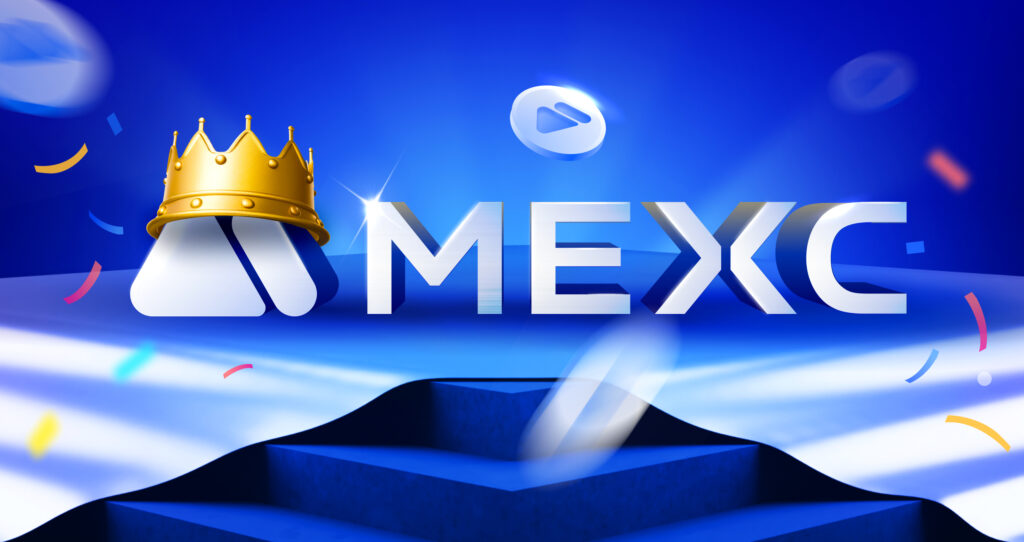
6 minute read
MEXC vs Margex: A Comprehensive Review
from MEXC Exchange
by XM Blog
When comparing MEXC and Margex, the key difference is that MEXC is a large, global exchange offering a wide range of spot, futures, and staking options, while Margex is a smaller, derivatives-focused platform that emphasizes simplicity, fixed leverage, and anti-liquidation technology. If you are looking for access to hundreds of coins, deep liquidity, and a variety of trading products, MEXC is the better choice. If your main priority is leveraged trading with a user-friendly interface and protective tools against sudden liquidations, Margex could be more suitable.

✅ Trade with MEXC now: Open An Account 👈
In this detailed guide, we will break down the main differences between MEXC and Margex in terms of trading products, fees, security, KYC requirements, liquidity, and overall user experience, so you can choose the exchange that fits your needs best.
1. Overview of MEXC
MEXC was founded in 2018 and has quickly grown into one of the top global cryptocurrency exchanges by volume. Known for listing a massive number of trading pairs (over 2,000 at the time of writing), it offers both spot and futures markets, as well as staking, launchpads, and copy trading. MEXC’s low trading fees (as low as 0% for spot trading during promotions) and high liquidity make it attractive for active traders.
The platform is designed for both beginners and professionals, with a modern interface, mobile apps, API integration, and advanced order types. It is particularly popular among traders who want early access to newly listed altcoins, thanks to MEXC’s aggressive listing strategy.
2. Overview of Margex
Margex, launched in 2020 and based in Seychelles, positions itself as a secure, easy-to-use derivatives exchange for both new and experienced traders. Its main focus is Bitcoin-based perpetual contracts, with trading available in BTC, ETH, XRP, LTC, EOS, and a few other assets, all settled in Bitcoin.
One of Margex’s standout features is its “MP Shield” system, which helps prevent price manipulation and reduces liquidation risk during high volatility. Margex also allows flexible leverage from 5x to 100x, but unlike many exchanges, you can adjust leverage without closing your position. The platform is relatively small compared to giants like MEXC, but its clean interface and focus on risk control appeal to traders who prioritize safety over variety.
3. Trading Products and Market Variety
MEXC clearly dominates in terms of the number of markets available. It offers spot trading, USDT-margined and coin-margined futures, ETF products, staking, launchpads, and even fan tokens. The sheer breadth of assets means traders can diversify easily and catch early trends in altcoins.
Margex is much more specialized, offering perpetual contracts on a limited set of cryptocurrencies. This makes it less appealing for those who want to explore smaller or emerging projects, but the narrower focus can be an advantage if you mainly trade large-cap coins with leverage.
4. Trading Fees and Costs
MEXC’s spot trading fees start at 0.1% for both makers and takers, but frequent promotions often reduce this to 0%. Futures trading fees are competitive, usually around 0.02% for makers and 0.06% for takers. Using the native MX token can further reduce costs.
Margex uses a simple fee structure for its perpetual contracts: a maker fee of 0.019% and a taker fee of 0.060%. There are no deposit fees, and withdrawal fees are fixed in BTC. While these rates are competitive, Margex doesn’t offer the same deep liquidity discounts as MEXC for high-volume traders.

✅ Trade with MEXC now: Open An Account 👈
5. Liquidity and Order Execution
MEXC benefits from high global trading volumes and a large user base, which means tight spreads and deep order books for most major pairs. Even for many altcoins, slippage is minimal compared to smaller exchanges.
Margex, being smaller, has lower overall liquidity, but it mitigates this by integrating liquidity from multiple providers. This approach works well for its limited set of trading pairs, but it can’t match the execution speed and depth found on MEXC for large orders or niche markets.
6. Security and Regulation
MEXC uses standard industry practices such as cold storage, multi-signature wallets, and regular security audits. While it is not regulated by a major financial authority, it operates in compliance with multiple jurisdictions and has maintained a clean track record in terms of major hacks.
Margex places heavy emphasis on security, keeping 100% of user funds in cold wallets with multi-signature protection. Its smaller scale also means a reduced attack surface. However, like MEXC, it is not licensed by major Western regulators, so users should understand the legal implications in their own countries.
7. KYC Requirements and Accessibility
One of MEXC’s major draws is its optional KYC policy for most services. You can deposit, trade, and withdraw up to a certain limit without completing identity verification, making it attractive for privacy-conscious traders. That said, some fiat gateways and promotions require KYC.
Margex also does not require mandatory KYC for crypto-to-crypto trading, aligning with its privacy-friendly stance. This makes both exchanges accessible to users from many countries, though traders should still be aware of local laws.
8. User Experience and Platform Design
MEXC’s platform is packed with features—charting tools, order types, portfolio tracking, copy trading—but this can be overwhelming for beginners. Advanced traders will appreciate the full suite of options, while casual traders might need time to learn the interface.
Margex takes the opposite approach: a clean, minimalistic design with a focus on clarity. The trading dashboard is easy to navigate, and adjusting leverage or setting stop-loss/take-profit orders is straightforward. This simplicity is great for newcomers, but experienced traders might find the lack of advanced order types limiting.
9. Customer Support and Community
MEXC offers 24/7 live chat support, email assistance, and an active presence on social media platforms like Telegram and Twitter. The large user base means there’s also an abundance of community resources, including trading guides and discussion groups.
Margex also provides 24/7 live chat and email support, with a reputation for fast and friendly responses. Its smaller community means fewer unofficial resources, but the personalized attention can be a plus.
10. Which Should You Choose?
If you want:
· Access to thousands of coins and trading pairs
· Deep liquidity and low slippage
· A mix of spot, futures, staking, and other products
· Early access to new altcoin listings
Then MEXC is the better choice.
If you prefer:
· A simple interface focused on derivatives
· Fixed and transparent fees
· Anti-liquidation technology
· Privacy-friendly trading without mandatory KYC
Then Margex might suit you more.
Final Thoughts
MEXC and Margex cater to different trader profiles. MEXC is an all-in-one exchange with a huge selection of assets and tools, ideal for traders who want variety and liquidity. Margex is a focused derivatives platform with user-friendly features and protective technology, ideal for traders who value simplicity and risk management.
In the end, your choice comes down to whether you want the vast opportunities of MEXC or the streamlined experience of Margex. Some traders even use both—MEXC for altcoin spotting and spot/futures trading, and Margex for leveraged positions with added liquidation protection.
✅ Trade with MEXC now: Open An Account 👈
Read more:

